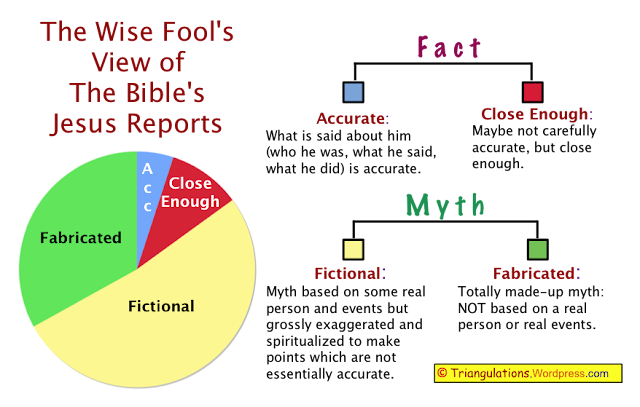Now, over one hundred and ten years since Paul Carus wrote his book, with advancements in linguistics, archeology, genetics, cosmology, etc., it seems that we have metaphorically eaten the forbidden fruit of knowledge, and our eternal expulsion from the Garden of Eden of naivety, with its selfish love affair of personal deities, is only a matter of time. What will remain? Carus' vision still saw a place for religion:
"...there are freethinkers who declare that Atheism will supersede all the different conceptions of God. But this is not probable. The Monistic tendencies of the age will not destroy, but purify and elevate religion. ... the religious ideas of the present time are symbols. Taken in their literal meaning, they are untenable, but understood in their symbolical nature they are seeds from which a purer conception of the truth will grow." HOD, P2, Paul Carus
Carus prophesied the emergence of a new type of religion, a better religion, which would grow out of the body of faith, once it had shed the chaff of its dogmatic, literal constraints. To him, wide scale Atheism was not feasible, as he explained:
A state of irreligion in which mankind would adopt and publicly teach a doctrine of Atheism is an impossibility. Atheism is a negation, and negations cannot stand, for they have sense only as confronted with the positive issues which they reject. HOD, P3, Paul Carus
In a sense, Carus' words are right. Atheism is really just a negation. However, there are definitely anecdotes of public teaching of an Atheist doctrine, if you can use the term "Atheist doctrine" in any kind of meaningful way. For example, I had a physics professor who wouldn't hesitate to mock the concept of God in front of the whole class if she was given a cue.
So unlike Carus, I do think that an Atheist doctrine could be part of the standardized school curriculum, but I would never endorse it, because if that were to happen, Atheism would truly become just like the religions it was denying validity.
In some sense, I think protagonists/antagonists, like my professor, play their little roles in changing the culture, but this kind of challenge and change should not be done on a mandate basis. For starters, such a mandate would be unconstitutional, akin to the government sponsoring a national religion, even if it is more of an anti-religion. Beyond that, I feel that spirituality is something to be worked out on a personal level, and any spoon-fed source of it, be it the classroom or the clergy, should be highly scrutinized. Rather, the job of educators in that arena should be to enhance critical thinking skills, to present the facts, and to present the unknowns.
Besides, we shouldn't have to teach Atheism, any more than we have to teach that there is not a magical, pink, glittery, rocket-propelled hedgehog in orbit around Neptune. Atheism comes from our understanding and perception of the world. As such, in our modern era with our level of scientific understanding, some people will naturally choose Atheism.
At the same time, other people will understand or perceive some invisible agent, and will choose religion and/or spirituality, regardless of what is taught in our classrooms. Spirituality will persist, even when all formal, doctrinized religions are proven wrong, or proven to be valid only metaphorically. This is not necessarily a bad thing, if we can harness our spiritual side for creativity, mutual understanding, and a greater moral impetus.
As opposed to indoctrinating the negation of Atheism, Carus had a different concept of where our spirituality would turn...
Yet our present anthropomorphic view of God, briefly called Anthropotheism, which as a rule conceives him as an infinitely big individual being, will have to yield to a higher view in which we shall understand that the idea of a personal God is a mere simile. God is much more than a person. When we speak of God as a person, we ought to be conscious of the fact that we use an allegory which, if it were taken literally, can only belittle him. The God of the future will not be personal, but superpersonal. HOD, P3, Paul Carus
A superpersonal God? What does that even mean? We'll explore that next time...











